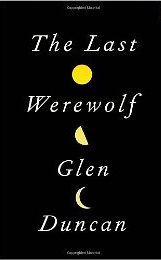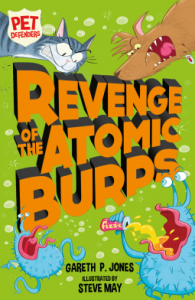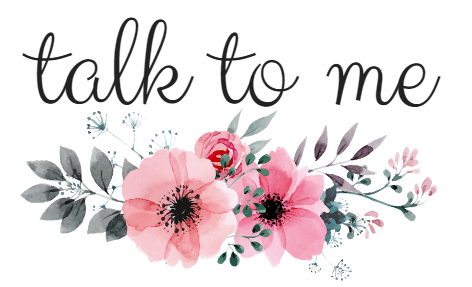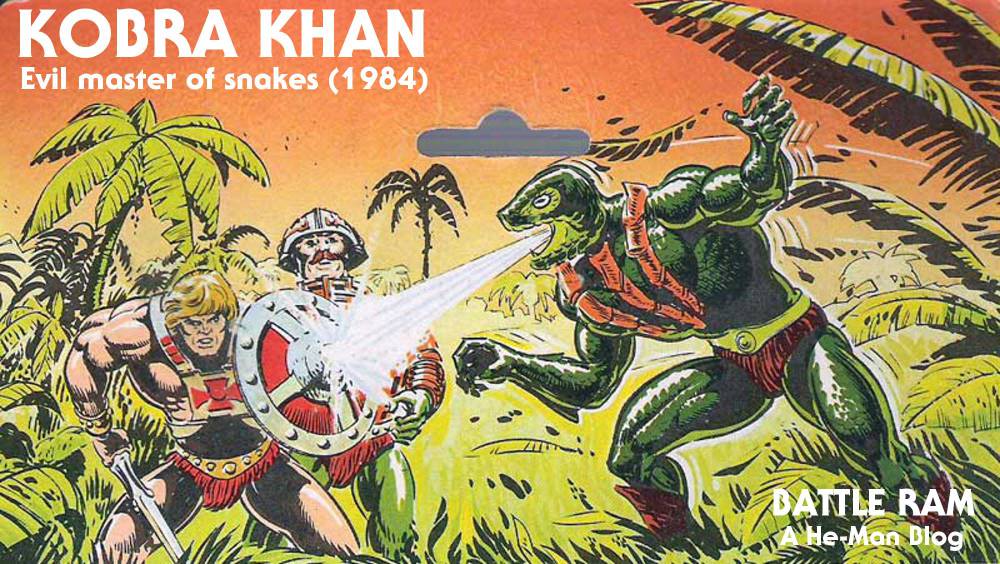
I remember getting Kobra Khan quite vividly. It was our last summer in our Eastern Washington house, before our big move across the mountains to a rainier, more temperate part of the Pacific Northwest. Although Kobra Khan was released in 1984, I didn’t get him until 1986. I remember gravely weighing my options at the store. I could get two toys, and I was determined that they be Snake Men. I was looking at getting Kobra Khan, or the newly released King Hiss or Rattlor. I don’t remember seeing Tung Lashor at the time. After studying all three toys and their packaging intently, I concluded that King Hiss was a cool idea, but his hidden snake body wasn’t all that great looking, so I went with the other two figures instead.
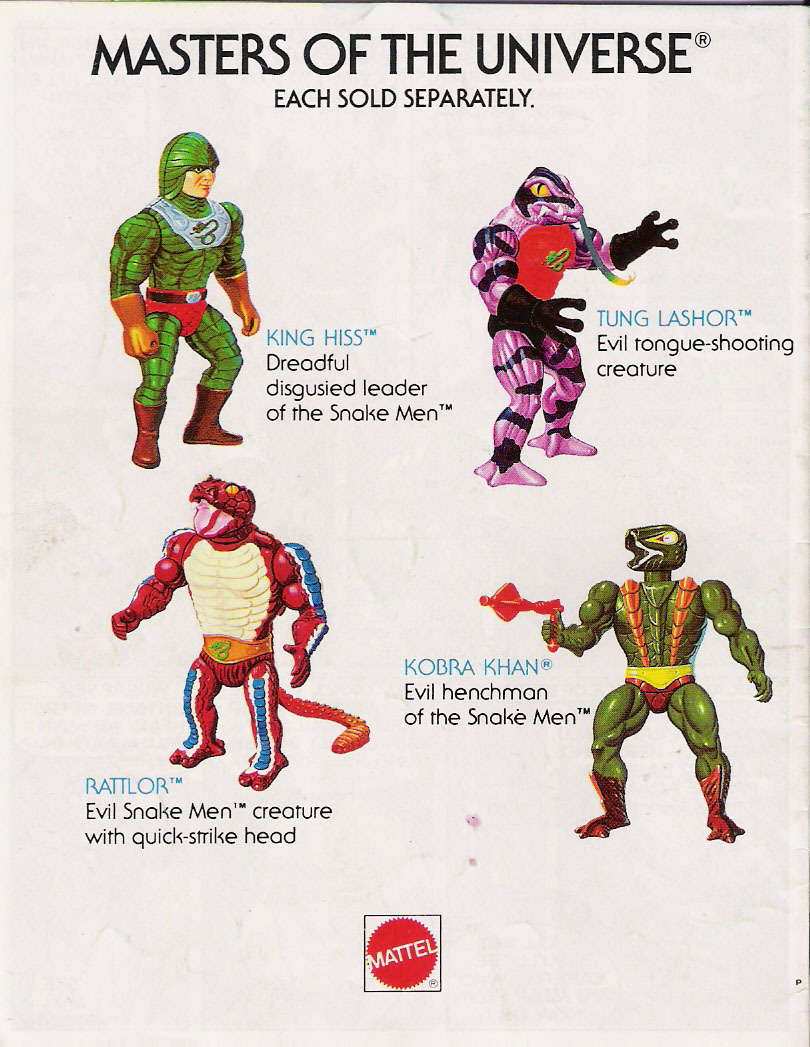
I spent the last hot summer in the old house running around with Kobra Khan. After he had sprayed his paralyzing mist on all of my heroic warriors, he turned his venom on most of our house plants, and of course on me as well. The figure put out a highly dispersed sort of mist, and it was a great way to stay cool. I played with him so much that I remember getting a sore finger from pushing down on his head.
Kobra Khan seems to have originated with a Roger Sweet concept for a warrior wearing a snake costume, like a male version of Teela. Actually, the concept recalls the G.I. Joe villain Serpentor on some ways, too, although that wasn’t released until 1986. In any case, as is noted in The Power and the Honor Foundation Catalog, Roger Sweet’s drawing seems to have a hole in the snake’s mouth, suggesting the water squirting feature was already planned out at this stage:
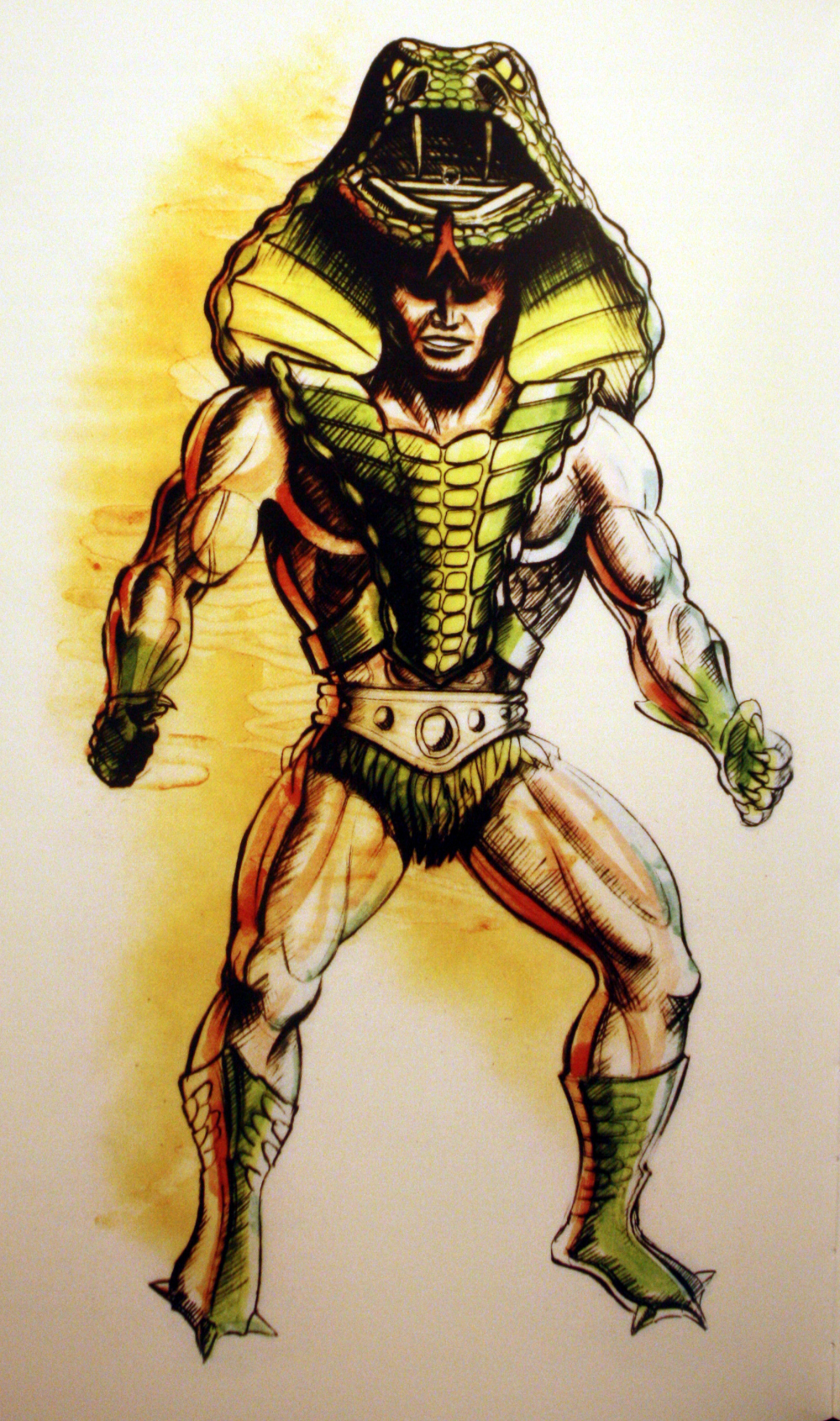 Image source: The Power and the Honor Foundation Catalog. Like Buzz-Off, this character started out as a costumed human being.
Image source: The Power and the Honor Foundation Catalog. Like Buzz-Off, this character started out as a costumed human being.
The final toy was, of course, quite different from Sweet’s original concept. While both toy and concept were to reuse Skeletor‘s arms and legs, the final toy had a unique sculpted and scaley chest and crotch piece. Due to the action feature, he didn’t have the usual twist waist action feature. Kobra Khan was given a snake head rather than the concept human head and snake cowl. Probably due to the fact that the character’s head had to press downward in order to activate the spray feature, he lacked the characteristic cobra hood. For his accessory, he was given an orange-red version of Zodac‘s gun. The name Kobra Khan was trademarked on January 27, 1984.
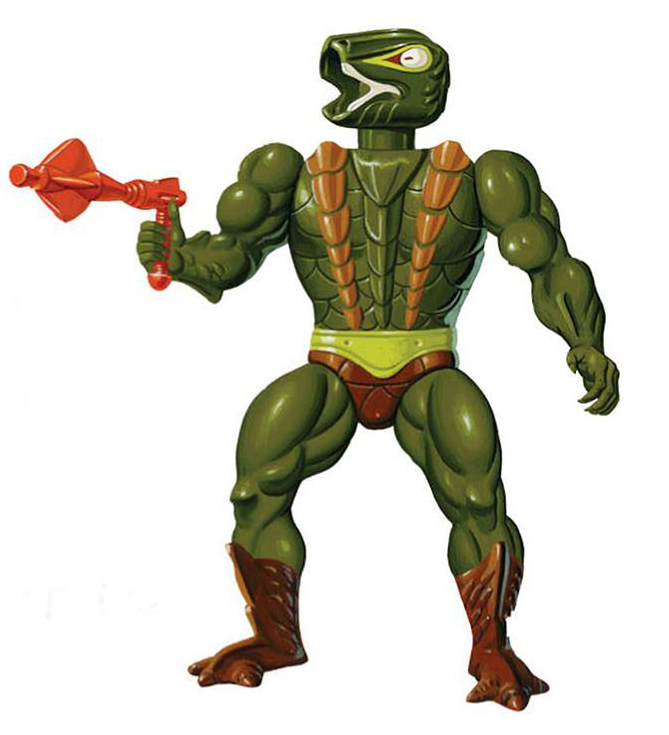 Image source: Axel Giménez
Image source: Axel Giménez
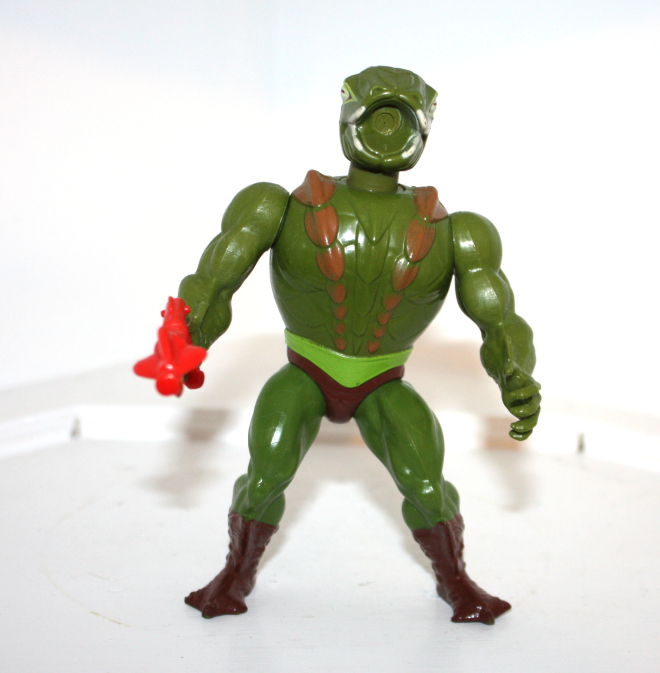
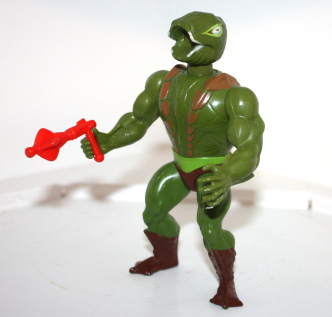
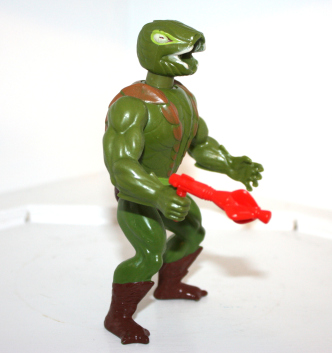
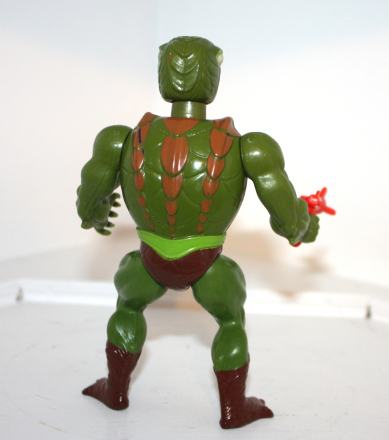

Kobra Khan was sold on the standard single card, as well as in a JCPenny two-pack with Whiplash. Errol McCarthy painted the scene on the back of his card, which features the villain trying to attack He-Man and Man-At-Arms with his hypnotizing mist:

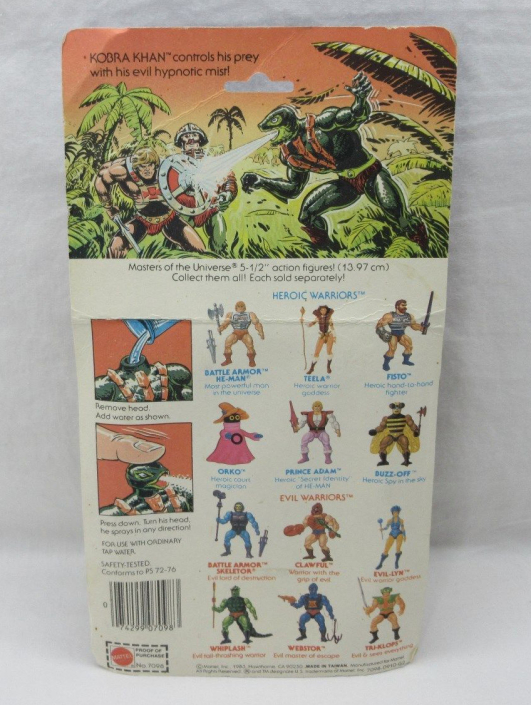
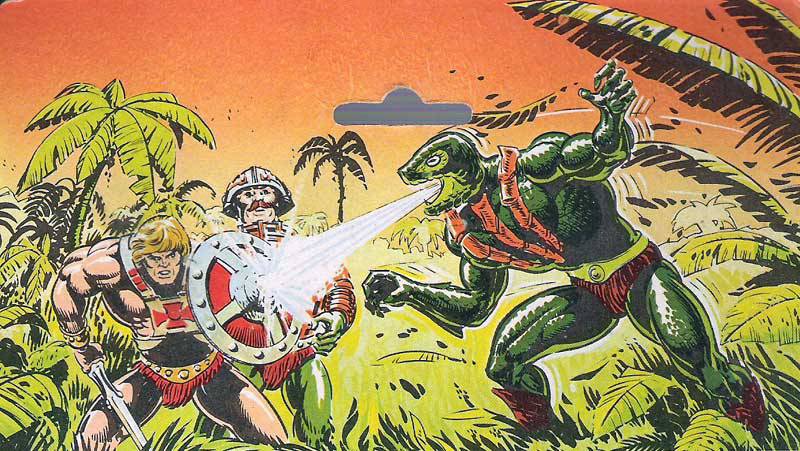 Image source: Grayskull Museum. Note that in this illustration, Kobra Khan’s center column of chest scales is painted brown.
Image source: Grayskull Museum. Note that in this illustration, Kobra Khan’s center column of chest scales is painted brown.
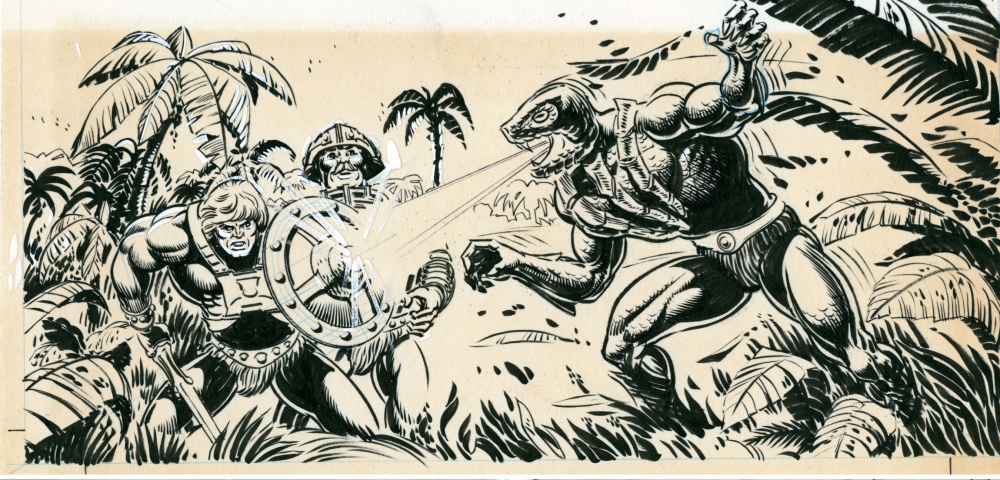 Image source: The Art of He-Man
Image source: The Art of He-Man

Errol McCarthy also illustrated the figure in a variety of contexts for use in licensed merchandise:
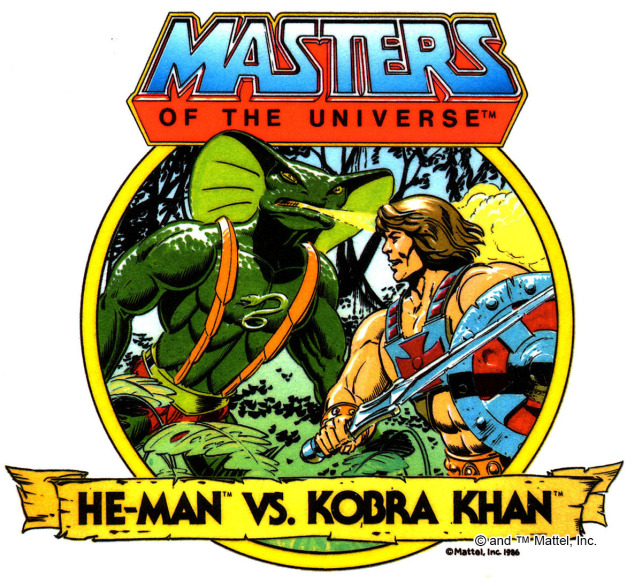 Image via He-Man.org
Image via He-Man.org 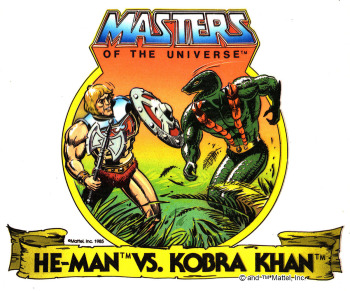 Image via He-Man.org
Image via He-Man.org 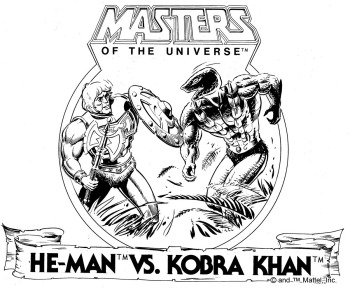 Image via He-Man.org
Image via He-Man.org  Image via He-Man.org
Image via He-Man.org  Image via He-Man.org
Image via He-Man.org 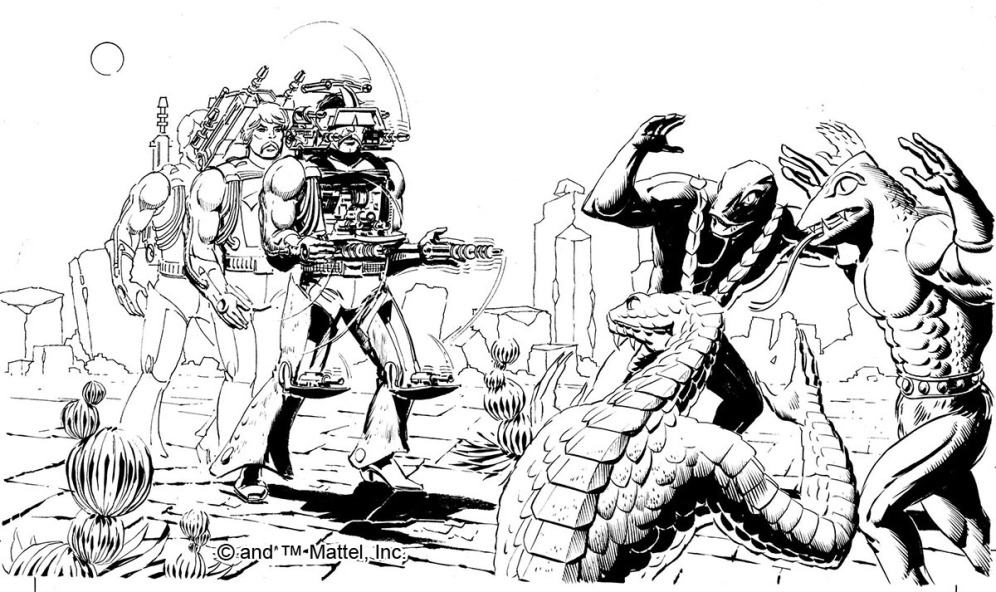 Image via He-Man.org
Image via He-Man.org
One of the above illustrations was also used in the 1987 Style Guide. Note that the character is given the cobra hood that the figure lacked – no doubt an influence from the Filmation cartoon (more on that later). Interestingly, he puts a Snake Men symbol on Kobra Khan’s chest, which is part and parcel to the retconning of Kobra Khan as part of the Snake Men. That faction wasn’t introduced until 1986:
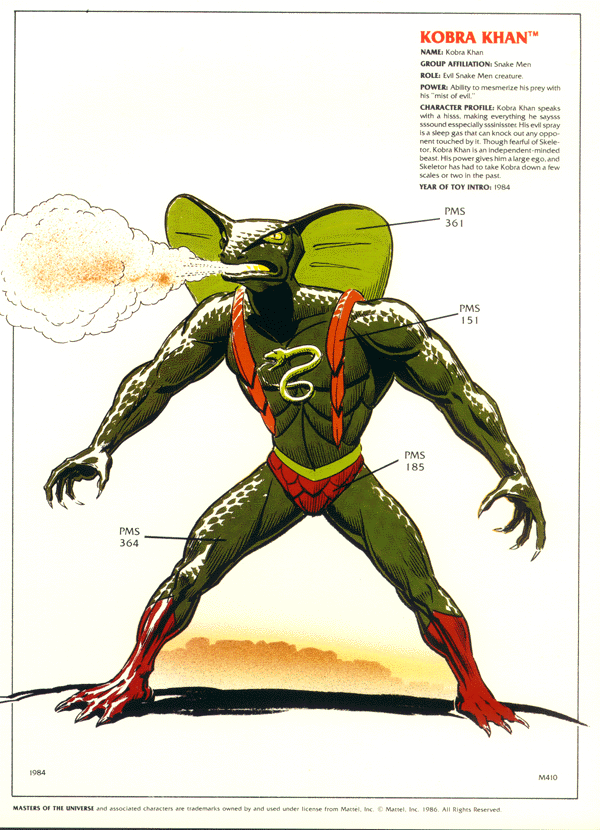
Interestingly, there was a version of Kobra Khan that did have the snake symbol on his chest– a variant made by Argentinian manufacturer Top Tops, called Kobra Khan Camuflado. Known as Camo Khan to many fans today, the figure had a green and black camouflage style paint job, gold boots and belt, and strangely, Buzz-Off’s clawed arms. He was given Clawful’s green mace as a weapon:
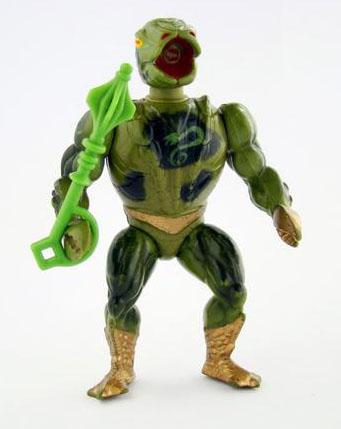 Image via He-Man.org
Image via He-Man.org
 Image via He-Man.org
Image via He-Man.org
 Image via He-Man.org
Image via He-Man.org
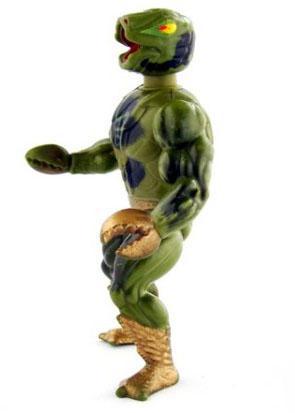 Image via He-Man.org
Image via He-Man.org
Kobra Khan first appears briefly in the background of the 1984 minicomic, Double-Edged Sword, and again in the background of Hordak, The Ruthless Leader’s Revenge (1985). He plays a much more central role in the 1986 minicomic, Rock People to the Rescue, where he teams up with Webstor against Rokkon and Stonedar.
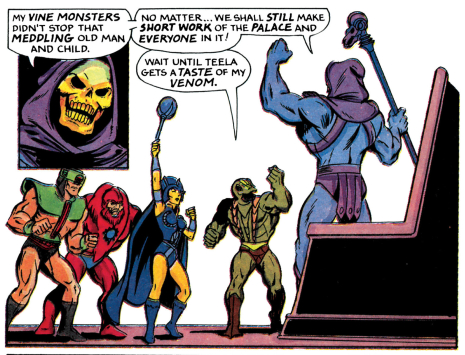

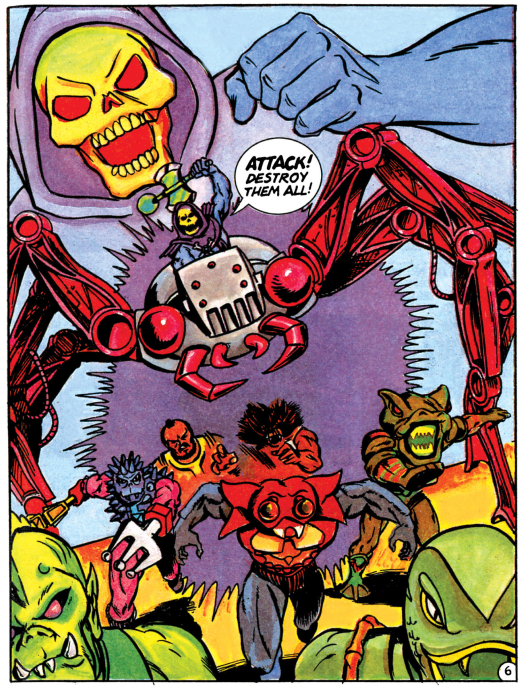
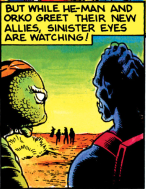
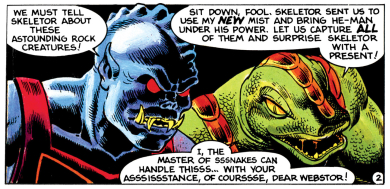

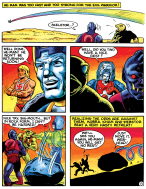
In the 1986 comic, King of the Snake Men, Skeletor instructs Kobra Khan to join with King Hiss as a spy. But in Fastest Draw in the Universe (also 1986) Kobra Khan is again a henchman of Skeletor.
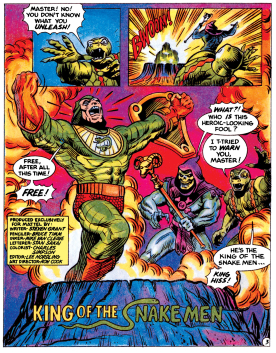
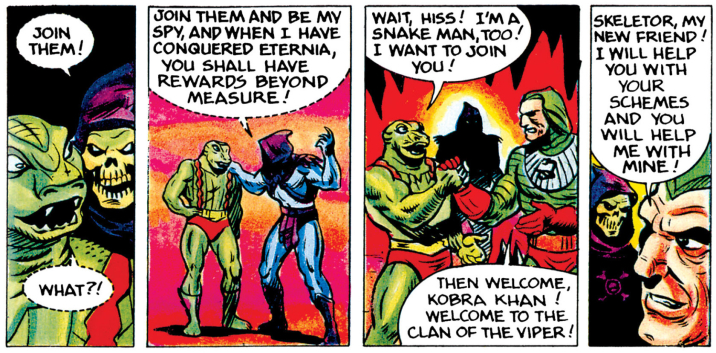

Kobra Khan appears prominently in the Golden Books story, Meteor Monsters, and plays a background role in Maze of Doom.
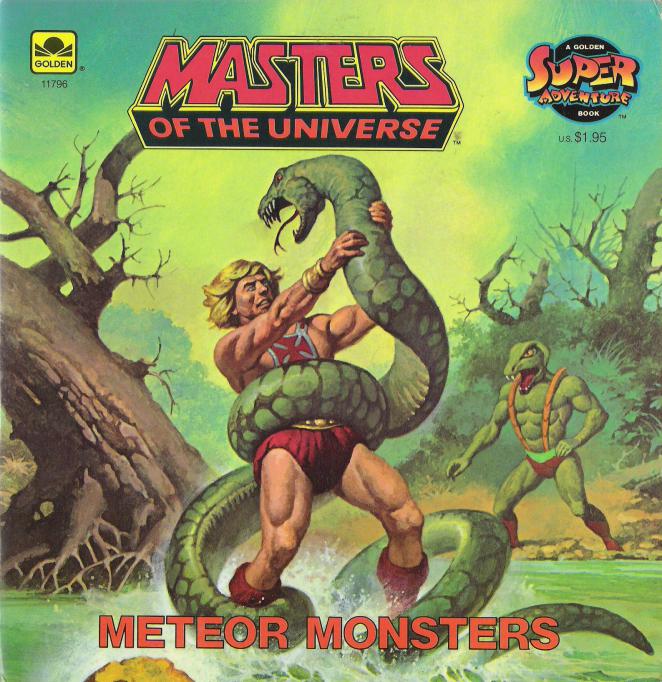
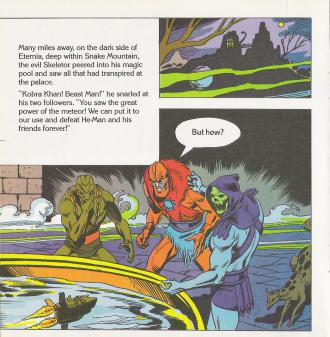

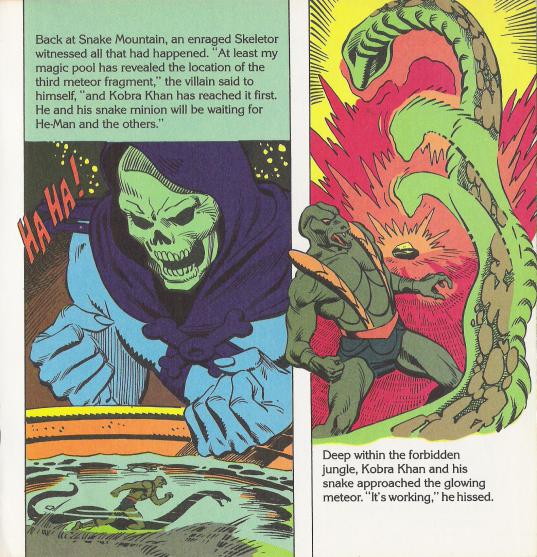
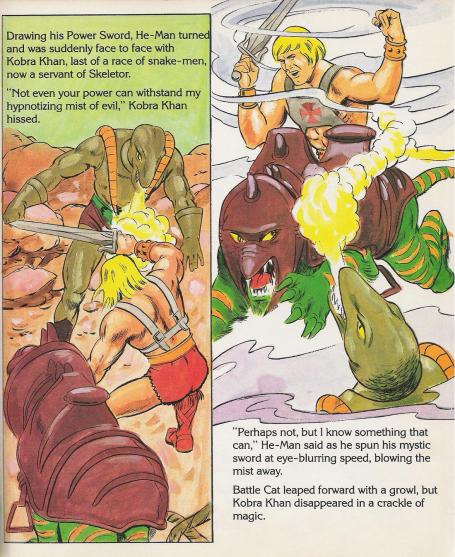
He also makes several appearances in poster artwork by both William George and Earl Norem:
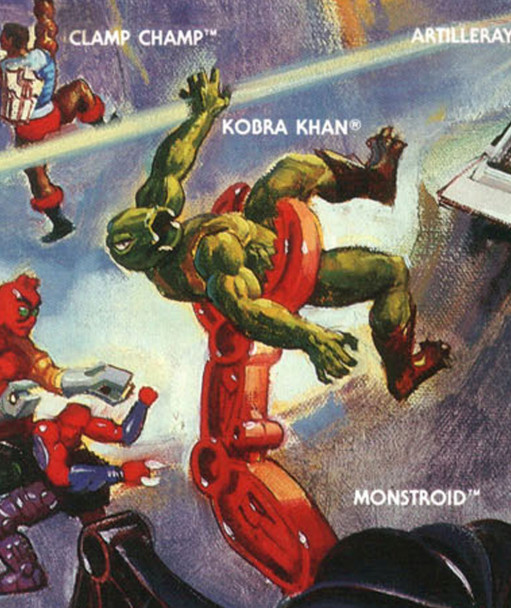 Artwork by William George. Image courtesy of Jukka Issakainen.
Artwork by William George. Image courtesy of Jukka Issakainen.  Artwork by William George. Image courtesy of Jukka Issakainen.
Artwork by William George. Image courtesy of Jukka Issakainen. 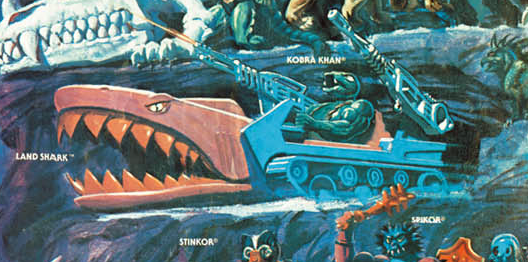 Artwork by William George. Image courtesy of Jukka Issakainen.
Artwork by William George. Image courtesy of Jukka Issakainen.
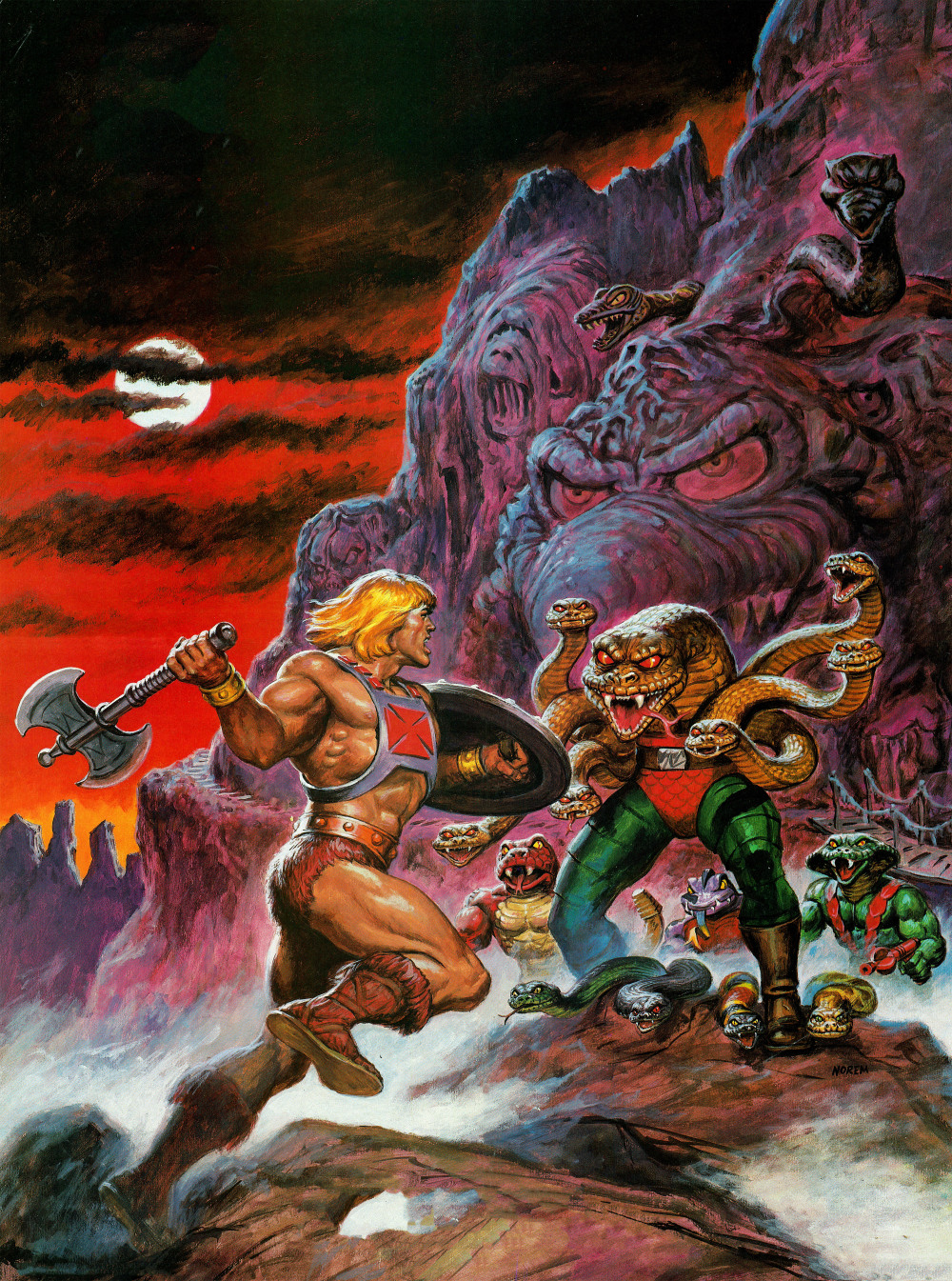 Illustration by Earl Norem. Note that Kobra Khan has his hood in this image.
Illustration by Earl Norem. Note that Kobra Khan has his hood in this image.
He only appears once on box art – in the 1985 Battle Bones illustration by William George:
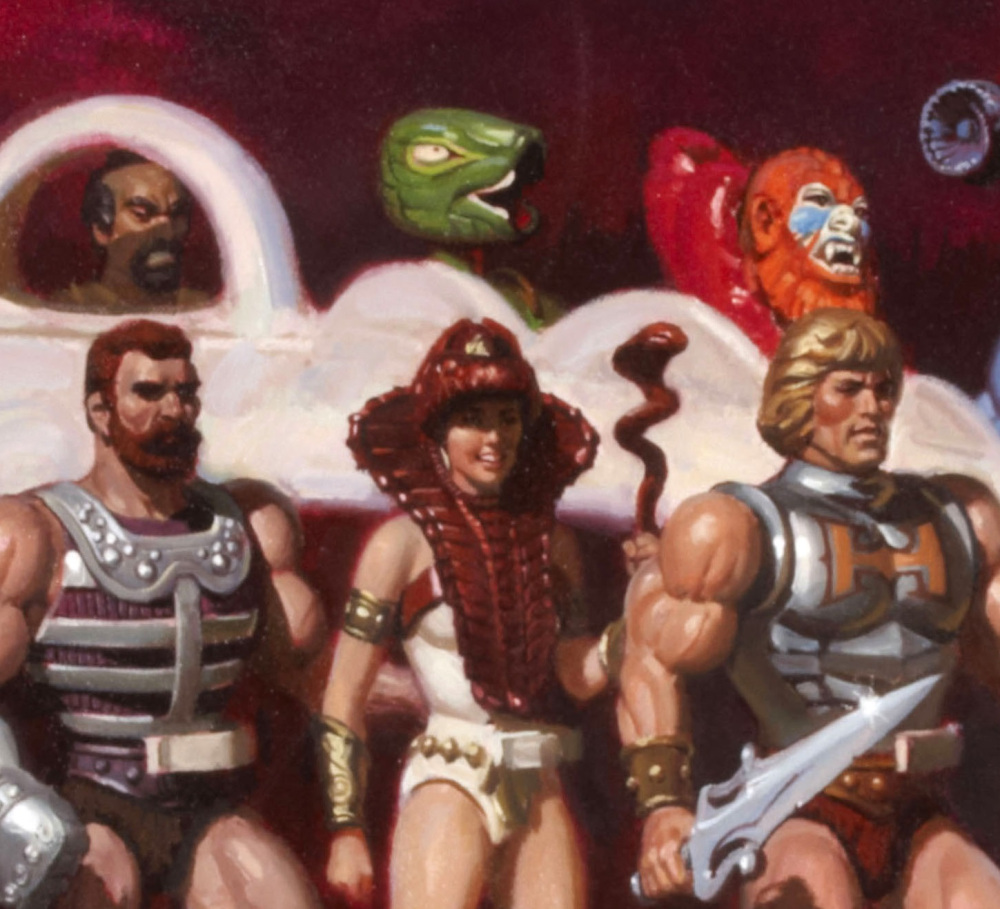
Kobra Khan didn’t appear frequently in the Filmation He-Man cartoon, but his appearances were memorable. The character was portrayed as clever and credibly threatening, able to knock out most opponents with his sleeping mist. His most memorable appearance is probably in “Disappearing Dragons”, where he teams up with Webstor and they square off against Buzz-Off and Mekaneck.
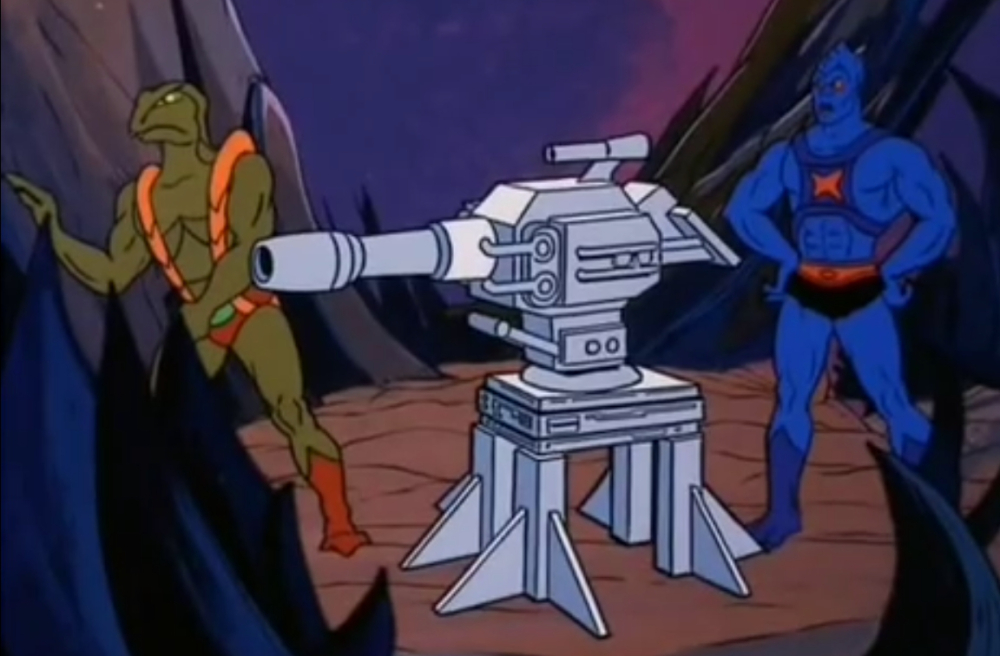
In the series, Kobra Khan is typically illustrated with his mouth closed. When he wishes to use his knockout gas on someone, his cobra hood extends and the gas seems to come from the hood rather than his mouth.


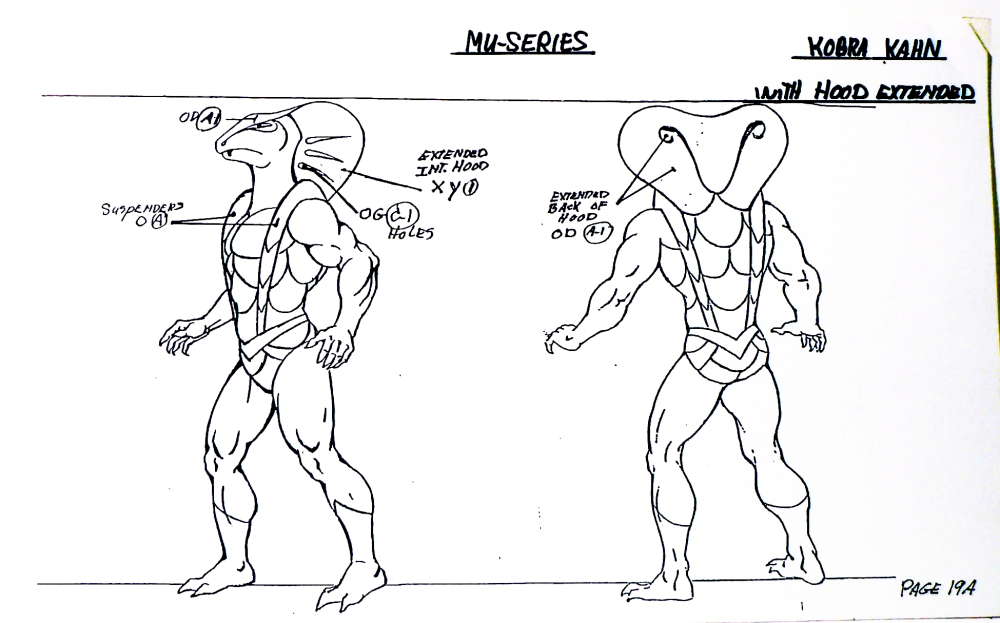
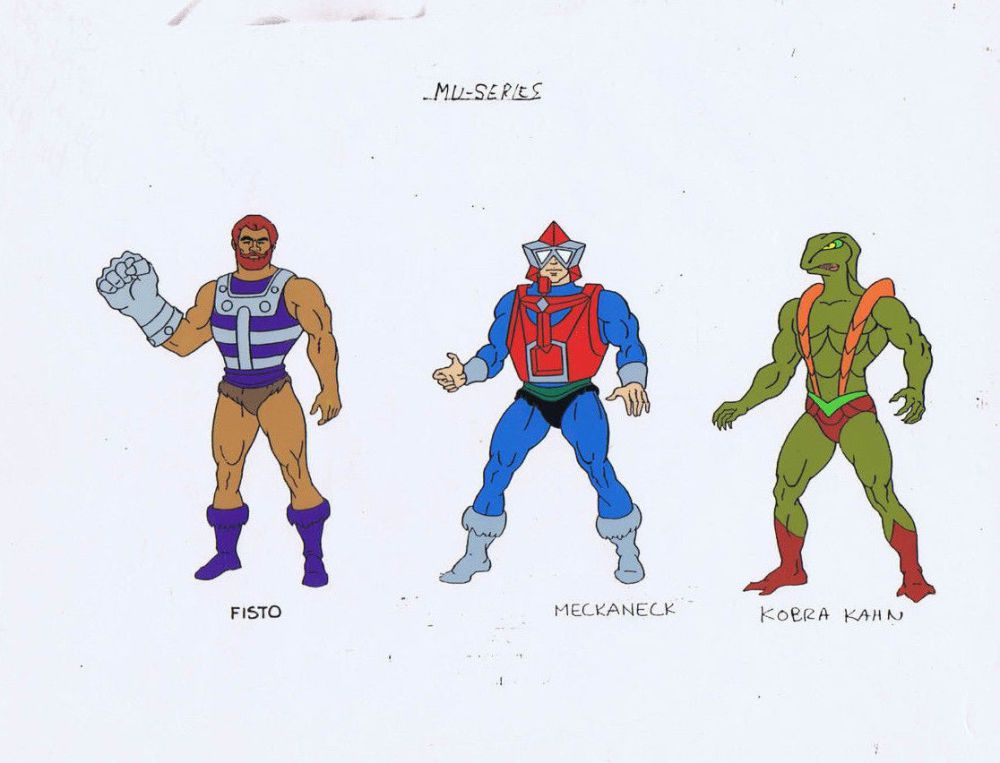
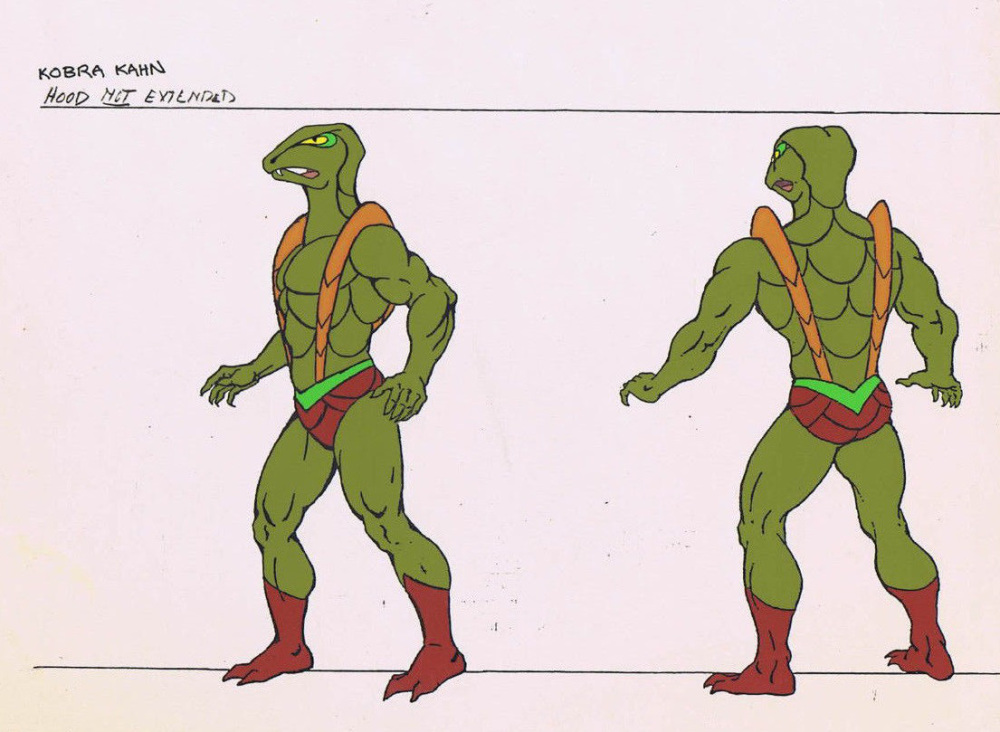
In “The Good Shall Survive” Khan displays the odd ability to elongate his arms (a trait later shared by Sssqueeze).
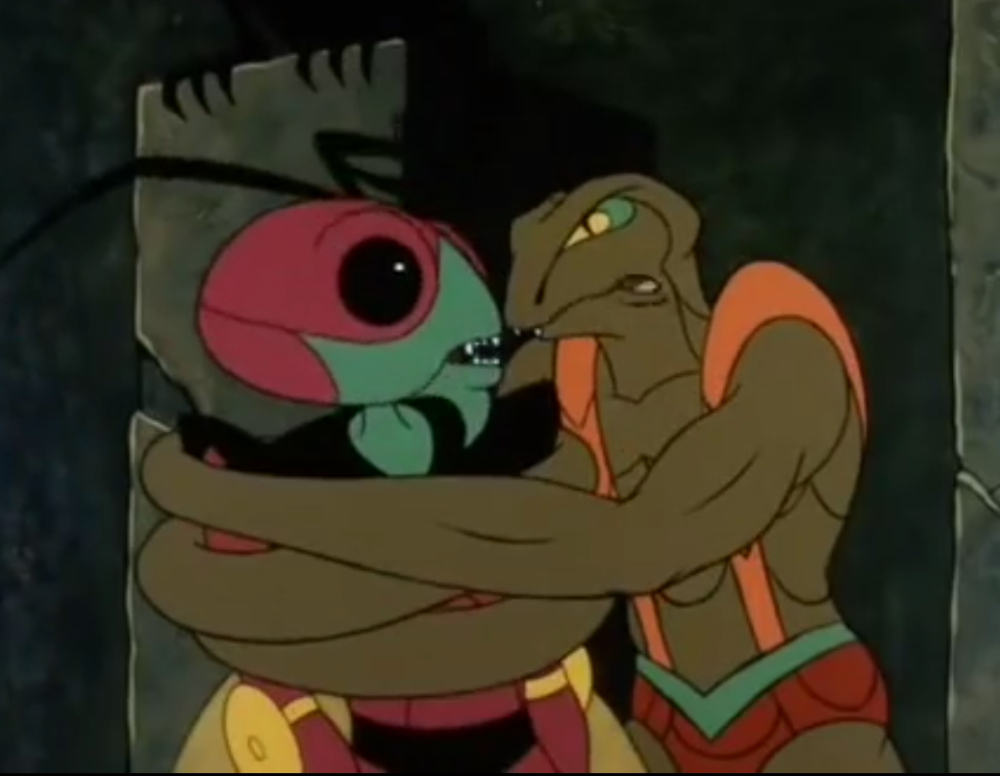
The final He-Man episode, “The Cold Zone”, features Khan as the primary villain, and we learn more about the Reptons (the race of snake men on Eternia). Because of that episode, I generally like to display Kobra Khan in the Land Shark.
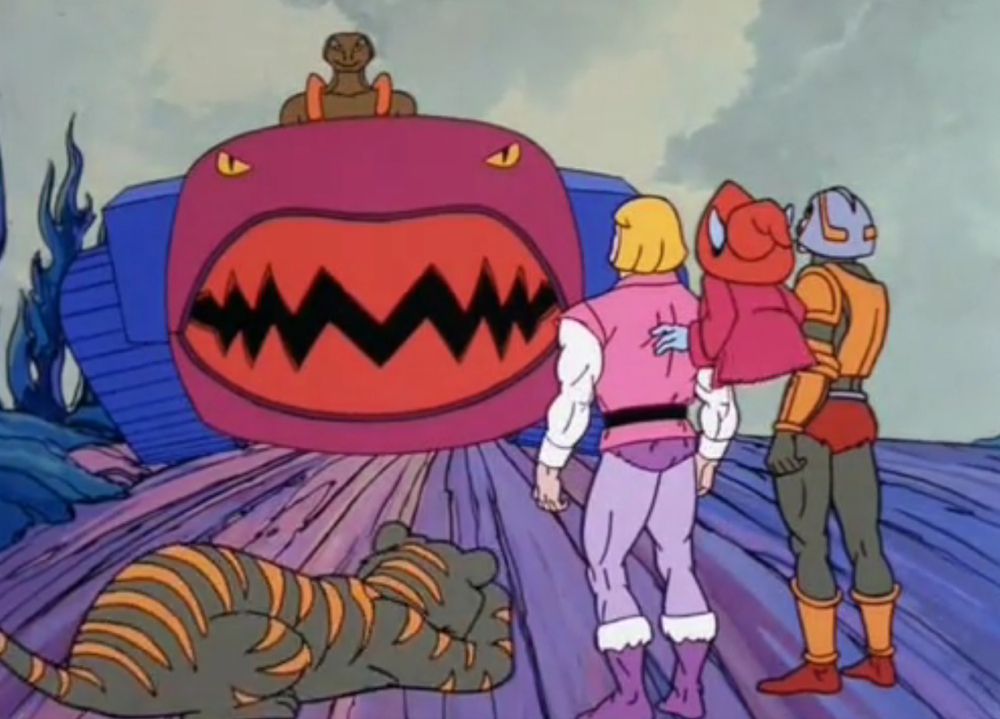
Kobra Khan was, oddly, colored brown in his appearance in issue four of the Star series of MOTU comics (thanks to an anonymous commenter below for pointing that out):
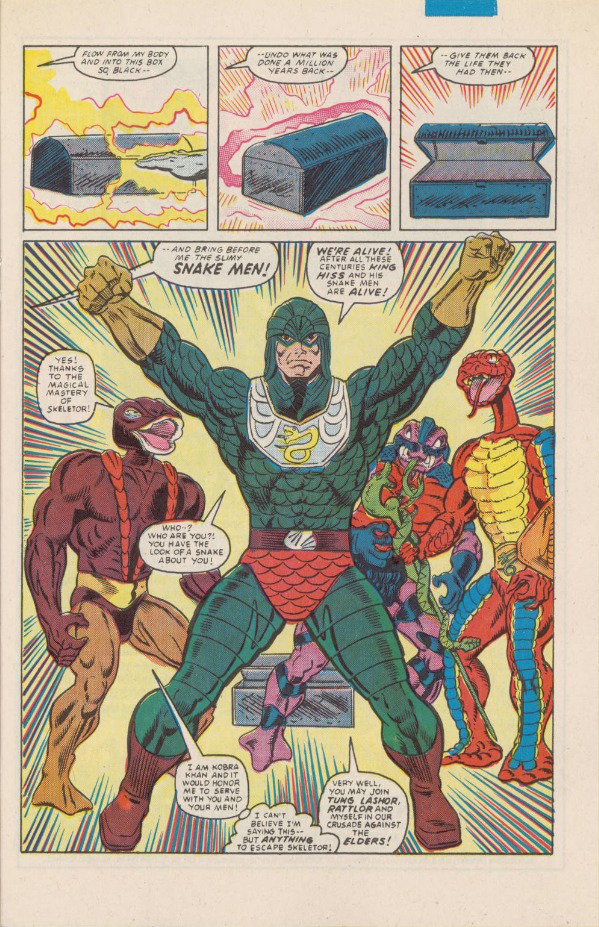 Image source: He-Man.org
Image source: He-Man.org
Kobra Khan is typical of third wave characters in that he was never ubiquitous in Masters of the Universe storytelling, but he was used occasionally as a henchman or villain of the week. The principle characters of the mythos seem to be grouped around the figures released in 1982 and 1983 as a general rule, with few exceptions.
Advertisements Share this:
